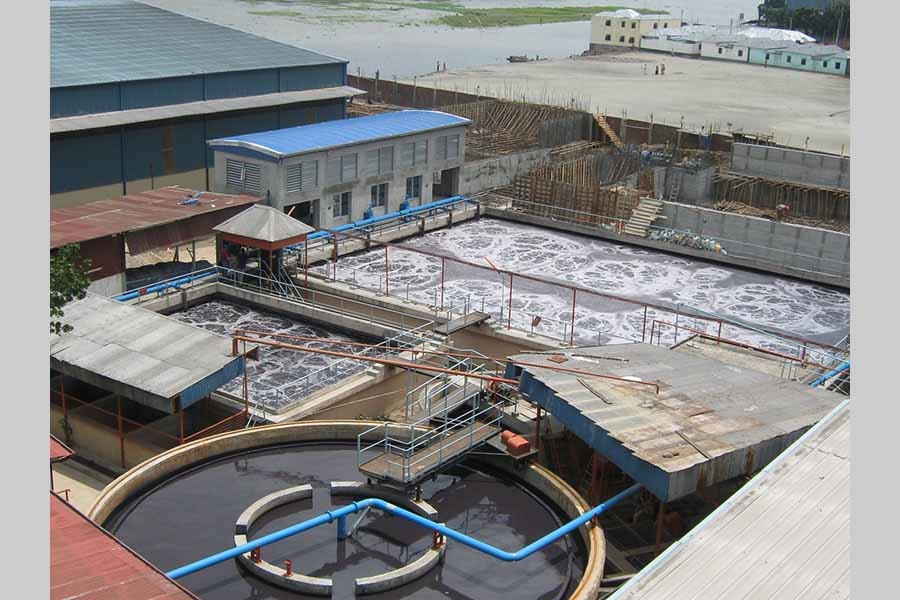As wastewater assumes mountainous volumes in different localities in many countries of the world including Bangladesh and as water is becoming increasingly scarce, recycling or reuse of wastewater could be an important weapon to combat the impending danger of receding water resources. The surface water volume is shrinking as water bodies particularly in urban areas are fast disappearing due to indiscriminate urbanisation. On the other hand, ground water level is also dropping lower. In a situation like this, efficient water management counts. Wastewater management should be looked upon as a value addition.
Surprisingly in Dhaka only 2.0 per cent of water is safely managed and only 17 per cent of our wastewater is treated. While high-income countries treat on an average about 70 per cent of the municipal and industrial wastewater they generate. The ratio is 38 per cent in upper middle-income countries and to 28 per cent in lower middle-income countries. In low-income countries, only 8.0 per cent undergoes treatment of any kind.
Similar to other developing countries, Bangladesh also faces several water-related problems both in urban and rural areas. Water-borne diseases are the common phenomenon among its inhabitants. Besides, absence of effluent treatment plants (ETP) in many industries is damaging the environment with untreated effluent water. Most of the untreated effluent is discharged into the nearest water bodies and this further pollutes the water of the already declining number of water bodies. Increasing ground water depletion is only compounding the problem further. High population density and economic adversities are already there affecting the environment and making water scarcity more daunting. The country therefore requires recycling facilities for wastewater on an urgent basis.
Wastewater treatment facility should be decentralised and spread across the country for the benefit of a greater number of people. It has now become an absolute necessity in Bangladesh which can remarkably change the state of water supply in urban areas by recycling the wastewater. Reuse of effluent water in the agricultural fields is another perspective of an additional water source. Treated effluent could be reused further in irrigation. This initiative can positively reduce pressure on groundwater as well as energy consumption.
Finally, it should be supplemented by proper management and a monitoring system. Without appropriate maintenance, the main objective of this decentralised treatment will not be acquired.
Water scarcity, poor water quality and inadequate sanitation negatively impact food security, livelihood choices and educational opportunities for poor families across the world. Drought afflicts some of the world's poorest countries, worsening hunger and malnutrition.
In a world where demands for freshwater are continuously growing, and where limited water resources are becoming a pain in the neck, pollution and climate change are aggravating the situation further. Neglecting the opportunities arising from improved wastewater management would be quite unwise.
Decentralised wastewater treatment can bring about a remarkable change in its management in Bangladesh. It can ensure reuse of effluent water in the agricultural fields for irrigation. It will help reduce pressure on groundwater as well as energy consumption. Effluent water can be recycled successfully and reused by the industries discharging it. A portion of the recycled water may be further treated to provide drinking water for the water scarce localities.
At least one in four people of the world is likely to live in a country affected by chronic or recurring scarcity of fresh water. One of the major problems affecting the sources of fresh water is inadequate provision of wastewater treatment.


